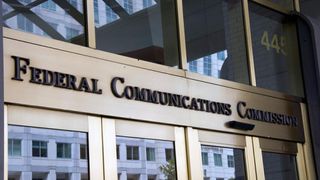NCTA: FCC Got It Right In Franchise Reg Redo

The FCC sought comment on whether it should prohibit cable franchising authorities from regulating non-cable services operators offer and whether in-kind "exactions" as part of the price of securing a franchise should be counted toward the FCC's 5% cap on franchise fees, fees that total about $3 billion annually. Their answer, not surprisingly, was "yes" and "yes."
Or as NCTA-The Internet & Television Association put it in its comments to the FCC this week, the "statutory language and Commission precedent compel that these questions be answered in the affirmative."
In a further notice of proposed rulemaking (FNPRM) the FCC tentatively concluded those should be the answers as well. That came as part of the FCC's effort, under chairman Ajit Pai, to take a new look at old rules and eliminate any that are outdated or perhaps never should have been on the books in the first place. It was also to respond to a court remand of earlier conclusions that both the in-kind exactions and fees on noncable services were out of bounds (see below)
Related: FCC Launches Revamp of Few Remaining Cable Rate Regs
NCTA says that despite clear direction from Congress that local franchise authorities (LFAs) can't abuse the franchising process, that is what has been happening through excessive fees and in-kind "contributions," which include but are not limited to "courtesy equipment, I-Net construction, network capacity, channels, grants, sponsorships, specially created programming, local retail facilities, cash “contributions,” free advertising," says NCTA.
Cable ops also say LFAs double tax them via separate franchise fees or rights-of-way fees on noncable services offered on those already franchise-fee levied systems.
Given the stranded investment of built-out systems, cable ops lack power to refuse the LFA demands, NCTA told the FCC, if that means losing a franchise and thus not being able to recover those sunk costs.
Multichannel Newsletter
The smarter way to stay on top of the multichannel video marketplace. Sign up below.
In Montgomery County, Md., v. FCC, the Sixth Circuit Court of Appeals last year found that the FCC could not use its mixed-use rule to bar LFAs from requiring franchisees to provide non-cable services because that would appear to prevent LFAs from regulating institutional networks, which statute clearly allows them to do.
The court also concluded that the FCC had not sufficiently justified why it had expanded its definition of franchise fees to include non-cash requirements by LFAs and thus count toward the 5% cap on franchise fees.
The court vacated those portions and remanded them back to the FCC for action, if necessary.
The FCC responded with the Sept. 25 FNPRM, telling the court that the "mixed-use network ruling should be applied to prohibit LFAs from using their video franchising authority to regulate non-cable services offered over cable systems by incumbent cable operators," which includes internet access services, and clarifying that they can still regulate institutional networks.
The FCC decision should help in its pushback on state and localities trying to re-regulate internet access services.
Contributing editor John Eggerton has been an editor and/or writer on media regulation, legislation and policy for over four decades, including covering the FCC, FTC, Congress, the major media trade associations, and the federal courts. In addition to Multichannel News and Broadcasting + Cable, his work has appeared in Radio World, TV Technology, TV Fax, This Week in Consumer Electronics, Variety and the Encyclopedia Britannica.

